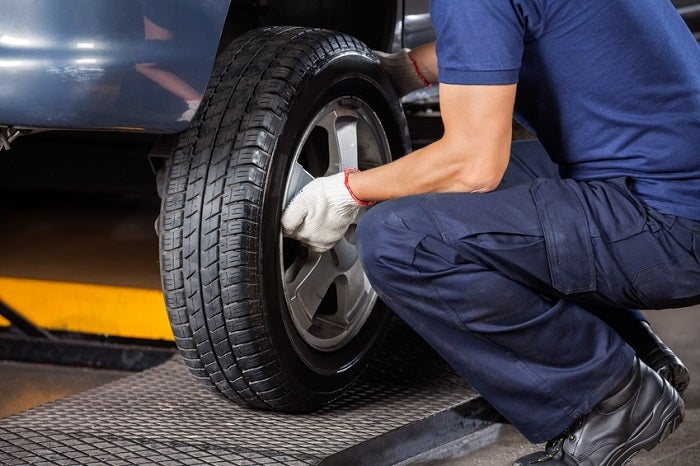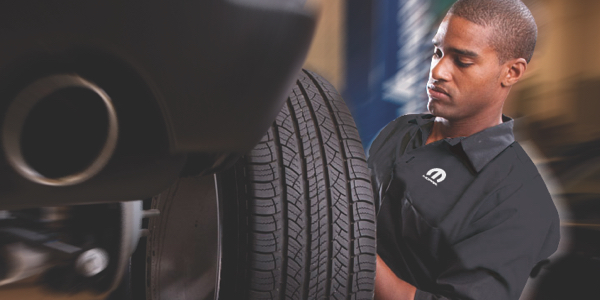The Web Link Between Tire Service and Fuel Effectiveness
Amongst the different factors that affect fuel effectiveness, tire service stands out as a vital element that usually goes ignored. The elaborate relationship between tire upkeep and gas economic climate is a testament to the detailed functions of a vehicle.
Relevance of Correct Tire Inflation
Correct tire rising cost of living is a crucial consider maximizing fuel effectiveness and making certain optimum vehicle efficiency. When tires are underinflated, it produces extra rolling resistance, causing the engine to work more challenging and melt more gas to keep the same rate. On the other hand, overinflated tires can lead to a harsher trip, unequal tire wear, and lowered traction. To locate the suggested tire pressure for your vehicle, refer to the owner's handbook or the sticker label situated on the driver's side door jamb.
Preserving the right tire stress not just boosts gas effectiveness but also boosts driving security. Correctly inflated tires provide better handling, stopping, and general performance on the road. Furthermore, they add to prolonging the life-span of the tires, conserving you cash in the long run by minimizing the frequency of replacements. On a regular basis inspecting and readjusting tire stress, specifically previously long journeys, is a straightforward yet effective way to optimize your automobile's gas economic situation and make certain a smooth driving experience.
Effect of Tire Footstep Depth
Preserving the suggested tire stress is necessary for ideal vehicle efficiency and fuel performance; likewise, the tread depth of your tires plays an essential role in ensuring security and traction on the roadway. Tire step deepness directly affects the capacity of your tires to grasp the road surface area, especially in wet or slippery conditions. As tires wear down, their walk deepness decreases, affecting their capability to channel water away and keep correct contact with the roadway. The advised minimum tread depth is normally 2/32 of an inch, but also for boosted safety and efficiency, lots of professionals recommend changing tires prior to they reach this factor. Proper step depth not just makes certain better handling and braking but likewise adds to sustain performance by lowering rolling resistance. Consistently inspecting your tire walk depth and replacing tires when needed is a basic yet reliable way to advertise both safety and gas effectiveness on the roadway.
Role of Wheel Placement in Efficiency
Making certain accurate wheel placement is essential for optimizing car effectiveness and taking full advantage of fuel economic situation. Proper wheel placement includes adjusting the angles of the wheels to supplier specifications, making certain that they are alongside each various other and vertical to the ground. When wheels are misaligned, it can cause irregular tire wear, raised moving resistance, and reduced gas effectiveness.

Additionally, precise wheel alignment can also improve dealing with and stability, minimizing the quantity of energy needed to maneuver the automobile (tire tracks morris il). By reducing unnecessary friction and drag, correct wheel alignment plays an essential role in enhancing overall lorry effectiveness and gas economic climate. Routine wheel placement checks and changes are crucial for maintaining optimum performance and making best use of gas savings
Link Between Tire Upkeep and MPG
An essential element of enhancing gas effectiveness in vehicles is the maintenance of tires and their straight influence on miles per gallon (MPG) check it out Correct tire maintenance plays a critical duty in taking full advantage of gas economy. On the other hand, overinflated tires reduce the contact patch with the roadway, leading to irregular wear and decreased fuel efficiency.
Furthermore, tire tread deepness additionally influences gas efficiency. By making certain tires have sufficient step deepness, motorists can enhance both security and gas economy.
Basically, proper tire maintenance, consisting of surveillance tire stress and step deepness, is straight linked to achieving optimal MPG. By including normal tire assessments and maintenance into a lorry treatment routine, chauffeurs can not only expand tire life however likewise enhance gas efficiency, ultimately conserving money and decreasing ecological effect.

Tips for Fuel-Efficient Tire Treatment
Provided the essential connection in between tire maintenance and fuel effectiveness, executing reliable strategies for maximizing tire care is essential to improving overall car efficiency. To guarantee fuel-efficient tire care, normal tire stress checks are vital. Properly inflated tires decrease rolling resistance, boosting fuel performance and expanding tire life expectancy. Additionally, preserving proper wheel positioning and harmonizing aids disperse weight evenly, avoiding unequal tire wear and maximizing gas usage. Rotating tires at suggested periods promotes even tread wear, enhancing fuel effectiveness by making sure all tires add equally to automobile efficiency. It is additionally vital to check tires for signs of damages, such as cuts, leaks, or bulges, as these problems can affect gas effectiveness and overall security. Selecting tires with reduced moving resistance can dramatically improve fuel economic climate. By integrating these fuel-efficient tire care ideas right into a routine maintenance timetable, chauffeurs can maximize fuel efficiency, decrease operating costs, and lengthen the life of their tires.
Verdict
By on a regular basis keeping tires and following fuel-efficient tire care ideas, vehicle drivers can optimize their car's recommended you read efficiency and lower fuel consumption. It is vital to focus on tire upkeep to not just conserve money on gas costs but likewise to advertise overall lorry effectiveness.